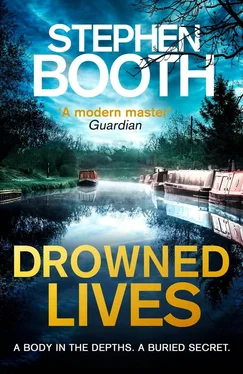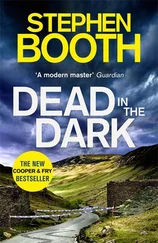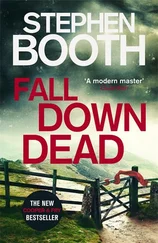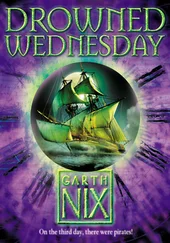When William Buckley married Sarah, the daughter of a local businessman, the canal company provided him with a house at Pipehill, and he was able to settle down within a few miles of his birthplace at Whittington. The couple’s only child, Edward, was born in 1798.
But, like so many other early canal companies, the proprietors of the Ogley and Huddlesford began to run into financial difficulties. Some of these were caused by inflation, some by shareholders defaulting on payments, or absconding without paying their debts, or going bankrupt. Other problems involved devious or dishonest contractors.
But the documents revealed that there was also a long-standing dispute with one of the company’s own major proprietors, Anthony Nall, who owned several coal mines with wharves served by arms of the canal. Nall had been elected chairman of the canal company, though some must have regretted it in the light of subsequent events. It seemed remarkable, from a viewpoint two centuries later, that the chairman should have been involved in such a bitter dispute with his own company without being replaced or thinking of resigning. Nall had an influential brother, too — Joshua, who’d been made Deputy Lord Lieutenant of the county.
The dispute seemed to have begun over the water supply, a common problem on early canals, which had come to a head with the building of a wharf at Fosseway. The Nalls were suffering from severe water shortages at their coal mines, for in 1799 the most that could be promised on the summit pound where the mines were situated was enough water for fifteen-tonne boats. Eighteen months later Anthony Nall petitioned Parliament for a Bill to permit him to bypass the canal by building a railway.
But the Ogley and Huddlesford scheme relied on carrying his goods. Fosseway Wharf had been built largely to serve Nall’s limeworks, and the company claimed that he was bound by agreement to transport his lime by the canal, as well as coal from his mines and corn to his brother’s mill. For some reason Anthony Nall had abandoned use of the wharf after a couple of years. Perhaps his lime quarry had closed. In any case, the company found it was no longer benefiting from the tolls and tonnage rates. The committee ordered the company secretary, Daniel Metcalf, to begin proceedings against Nall.
It was clear that the dispute had concerned William Buckley greatly. There seemed to have been some suggestion that his estimates for the building of the Fosseway wharf were wildly inaccurate, and this was the reason the company was losing money. William defended himself strongly. And he redeemed himself by uncovering a fraud that was being perpetrated by two of the proprietors themselves, which had drained the company of much of its resources.
It was Rachel who came across a reference in the assembly minutes.
‘This is interesting,’ she said.
‘What’s that?’
She was reading about a disaster that had hit the canal company in 1799, when the embankment of the reservoir at Cannock Heath had burst. According to the newspaper report: ‘the water swept everything before it in the line it took through Shenstone, Hopwas, Drayton &c till it fell into and overflooded the Tame at Tamworth. At Blackbrook, seven miles from the reservoir, the new stone bridge was blown up; numbers of sheep and some cattle were drowned. The damage sustained is calculated at many thousand pounds. At Hammerswich, near Lichfield, the meadows are twelve inches deep with the gravel the water brought down’. The report was dated 10th June 1799.
‘Is that Chasewater Reservoir?’ she said.
‘Yes, they reinforced it when they rebuilt it after the flood, and it’s lasted perfectly well ever since.’
‘That’s lucky for the people living near it.’
‘Hundreds would be killed if it happened now,’ I said, thinking of Frank and Sally Chaplin in their house at Chasetown. ‘The population of Burntwood has multiplied vastly since then.’
At some stage, Rachel had produced a plate of cheese and tomato sandwiches, a chocolate cake and a bottle of Buxton Spring Water. I wondered briefly whether I was keeping her from something else she ought to be doing. But she made no complaint, so I said nothing.
Then I noticed there was an oddity in the sequence of minutes. The records showed that a meeting had taken place in January 1800, four months before the normal time of the annual assembly.
‘What’s going on here?’ I said, frowning at the handwriting that followed. ‘It says it’s a special meeting.’ I turned back a page to the previous assembly. ‘There’s no mention of it earlier on. It must have been called some time during the summer.’
‘Well, generally a certain number of members can get together and call for a special meeting, or the chairman can do it himself. Yes, it’s here, I think. On the request of five proprietors under standing orders. Then the proprietors are named — there’s Geo Wilkinson, Wm White, Adam Henshall. And there are our old friends, Anthony and Joshua Nall. There was a proposal that “the Conduct of certain members of the Committee has been such as to merit the Approbation of the Company present”.’
‘Hello? What were they getting steamed up about this time?’
‘Oh, blah, blah... blah, blah. Mmm. It seems they’d discovered the company was owed more than four thousand pounds by defaulting proprietors. It says here they thought there was “great Neglect somewhere to have allowed so large a Balance to become due”.’
‘Four thousand quid or so?’ I said. ‘What’s that in modern terms?’
‘Multiply by fifty, that’s the usual reckoning.’
‘Two hundred grand? Not to be sneezed at.’
‘I’ll say. Remember the original amount raised to start the canal was only £25,000. And the shares were worth £125 each,’ said Rachel.
‘Right. So that’s a pretty big chunk of shares not paid for, isn’t it?’
‘Or a big chunk of money gone missing somehow.’
‘And does it say who’s taking the blame for all this?’
‘Not clear. Not from these minutes anyway.’
‘Was William Buckley there?’ I asked.
‘Yes, his name’s on the attendance list.’
‘I wonder which side he was on. His letters don’t give any clue, do they?’
‘January 1800?’ She opened the box file and turned over the letters. ‘This second one’s from 14th January that year. But if he had any idea about it, he doesn’t mention it to Reuben Wheeldon.’
I leaned over her shoulder to read the second letter. ‘Oh yes, he does. Look at this: “God give me patience, but I have been in so uneasy a state of Mind as not to be fit to write. Things have happened lately of great Perplexity.” Later on he says: “I am extremely sorry to have given you any uneasiness, but I will call on you tomorrow week. I hope also to bring you the documents of which I spoke.”’
‘So he was going to visit Wheeldon. I wonder how long he stayed away.’
‘Why?’
Rachel had turned past the special meeting to the next page of minutes. ‘It’s just that William Buckley’s name isn’t on the attendance list at the next assembly meeting. And it was the first assembly he’d missed in four years.’
Pipehill, Lichfield, Staffordshire. Tuesday 14th Jan. 1800.
To Reuben Wheeldon Esq., Warner Street, Ellesmere, Cheshire.
My dear friend,
God give me patience, but I have been in so uneasy a state of Mind as not to be fit to write. Things have happened lately of great Perplexity, and I walk about the room by the hour in great emotion. Would to Heaven that I had not taken up the cause of righteousness, but I do not count upon any Happiness in the present hour. Why am I to be thus insolently called to account? Am I not at liberty to please myself?
Читать дальше












